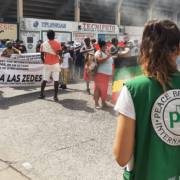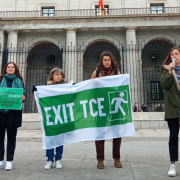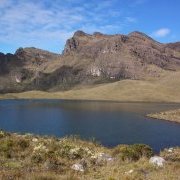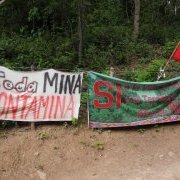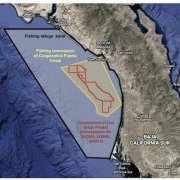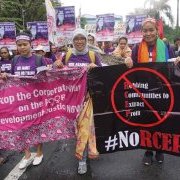2-May-2022
Peace Brigades International Canada
The ZEDEs are free from import and export taxes, but could set up their own internal forms of government, as well as courts, security forces, schools and even social security systems.
21-Apr-2022
Kluwer Arbitration Blog
ISDS in Latin America is here to stay. While disputes in sectors such as pensions and telecoms are becoming more common in the region, we expect to see a ripening of COVID-related, tech and energy disputes.
21-Apr-2022
The Daily Guardian
State exclusivity in the lithium value chain can violate the treaty between Mexico, the United States and Canada (T-MEC).
15-Apr-2022
Inequality.org
Mexico and many other countries are facing anti-democratic corporate lawsuits like the case that pushed Khan to withdraw from international investment agreements.
12-Apr-2022
News Intervention
Several aspects of Reko Diq deal with Barrick Gold are still concealed and Balochistan is not aware of the details of the agreement, say civil society members and politicians from the region.
21-Mar-2022
The Express Tribune
In 2019, the ICSID tribunal had given an award over $6 billion against Pakistan to the TCC. At the same time, the London Court of Arbitration also imposed another $4 billion fine on Pakistan.
3-Mar-2022
Inequality.org
An attempted assassination, criminalization, and violent eviction in 2014 didn’t stop the Peaceful Resistance of La Puya in Guatemala, which won legal action suspending harmful mining activities.
2-Mar-2022
Inequality.org
In the Gulf of Ulloa, a US treasure-hunting company turned seabed mining outfit poses a dire risk to the environment.
2-Mar-2022
Global Justice Now
It is perfectly possible to withdraw from trade deals containing corporate courts, as former South African trade minister Rob Davies explains.
28-Feb-2022
Climate Home News
The German government has been worried about being sued by the fossil fuel companies behind the Russian gas pipeline under the Energy Charter Treaty.



